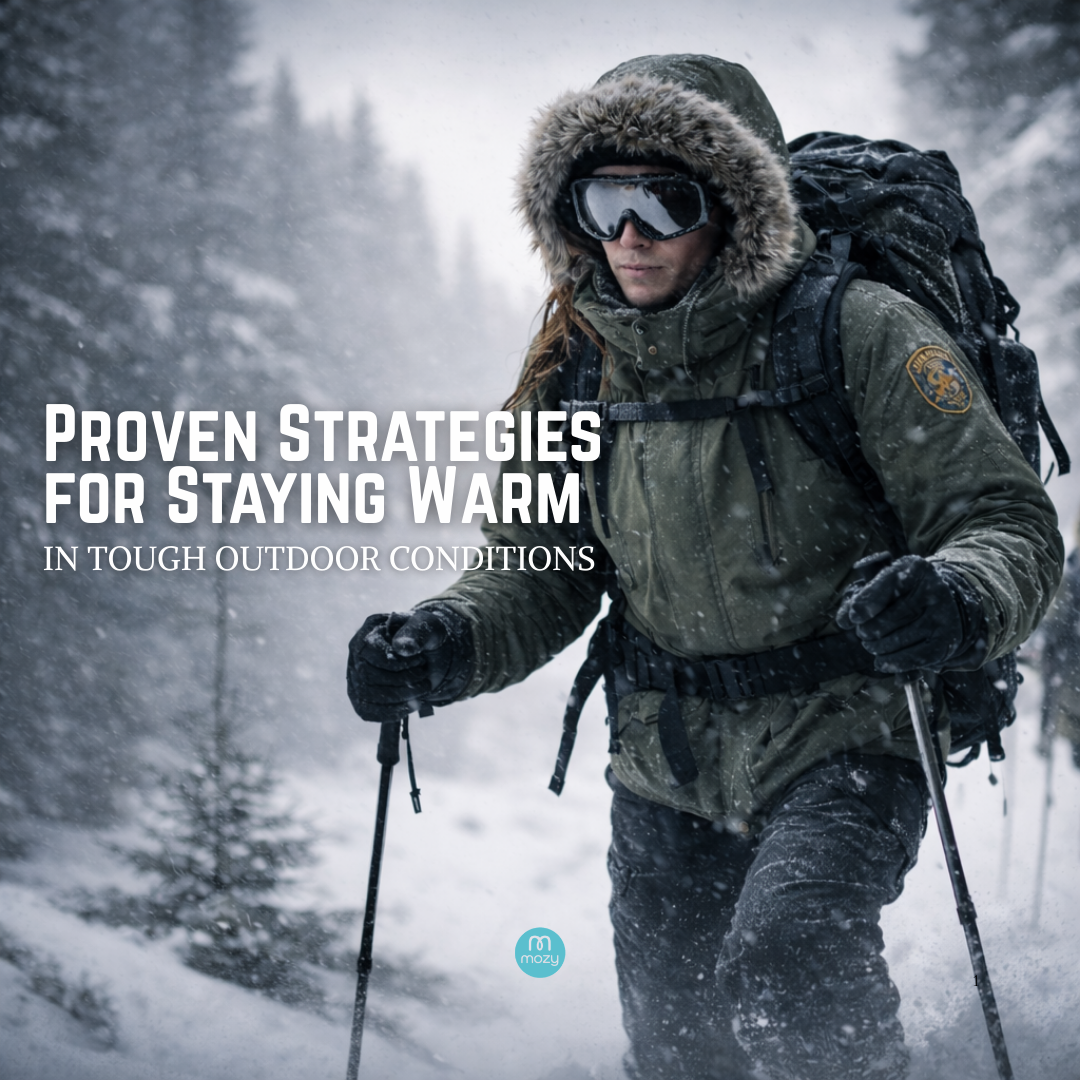8 Medical Reasons You Might Always Be Cold
(And How The Mozy Keeps You Warm)
Author: The Mozy Content Team is made up of outdoor-loving storytellers dedicated to helping you stay warm, cozy, and connected—wherever life takes you. We share tips, stories, and updates inspired by real Mozy moments and our amazing community.
Ever wonder why you’re the first to reach for a sweater or the last to take it off? If you’re always cold, even when others are comfortable, there could be a medical reason behind your chill. Let’s dive into the science and solutions—so you can stay warm and worry-free.

1. Hypothyroidism: When Your Thermostat is Off
Your thyroid gland acts as your body’s thermostat. When it’s underactive (hypothyroidism), it doesn’t produce enough hormones to keep your metabolism running smoothly. This means your body struggles to convert stored energy into heat, leaving you feeling cold, sluggish, and tired. People with hypothyroidism are more likely to experience hypothermia and have trouble warming up, especially in their hands and feet, as blood is drawn away from the extremities to protect vital organs.
2. Anemia: Not Enough Oxygen, Not Enough Warmth
Anemia means your blood lacks enough healthy red blood cells or hemoglobin to carry oxygen efficiently. Without enough oxygen, your body can’t generate heat as effectively, making you feel cold, especially in your hands and feet. Common causes include iron, folate, or vitamin B12 deficiencies. Symptoms often include fatigue, pale skin, and shortness of breath.
3. Raynaud’s Phenomenon: When Blood Vessels Overreact to Cold
Raynaud’s phenomenon is a condition where small blood vessels in your fingers and toes narrow excessively in response to cold or stress. This reduces blood flow, causing your extremities to turn white, then blue, and finally red as blood flow returns. The result? Painful, numb, or tingling fingers and toes, often triggered by even mild cold. While usually mild, severe cases can cause lasting discomfort.
BUY YOUR MOZY HERE
4. Poor Circulation: When Blood Can’t Reach Your Extremities
Conditions like peripheral artery disease (PAD), diabetes, or general poor circulation can restrict blood flow to your hands and feet. When less warm blood reaches these areas, they feel colder than the rest of your body. Symptoms may include pain, numbness, or slow-healing sores in the legs and feet.
5. Low Body Weight: Not Enough Fat to Insulate
If you’re underweight or have a low body mass index (BMI), you may lack enough body fat to insulate against the cold. Fat acts as a natural barrier, trapping heat close to your body. Without it, you’re more susceptible to feeling cold, especially in chilly environments.
6. Vitamin and Mineral Deficiencies: Missing the Micronutrient Mark
Low levels of iron, vitamin B12, or folate can lead to anemia and increased cold sensitivity. Even deficiencies in vitamin D or magnesium can affect how your body regulates temperature. These nutrients are essential for healthy blood cells and efficient metabolism.

Autoimmune diseases (like lupus or fibromyalgia), diabetes, and chronic inflammation can disrupt your body’s ability to regulate temperature. These conditions often involve nerve damage, poor circulation, or metabolic changes that make you more sensitive to cold.
8. Medications and Age: The Unseen Culprits
Certain medications, including some blood pressure drugs and antidepressants, can affect circulation or your body’s ability to regulate temperature, making you feel colder than usual. Additionally, as you age, changes in blood vessels and metabolism can increase your sensitivity to cold.
Mozy Can Help Keep You Warm Despite Medical Conditions

The Mozy isn’t just another blanket or jacket. It’s a wearable, weatherproof wrap that secures around your waist, staying put while you move. Its patented thermodynamic design seals in your body’s own heat, blocking wind and moisture, so you stay 5X warmer than with a standard blanket. Mozy’s unique construction helps maintain a comfortable core temperature and can ease the discomfort caused by poor temperature regulation or reduced blood flow to extremities. Perfect and practical for those who struggle to stay warm due to underlying health issues.



